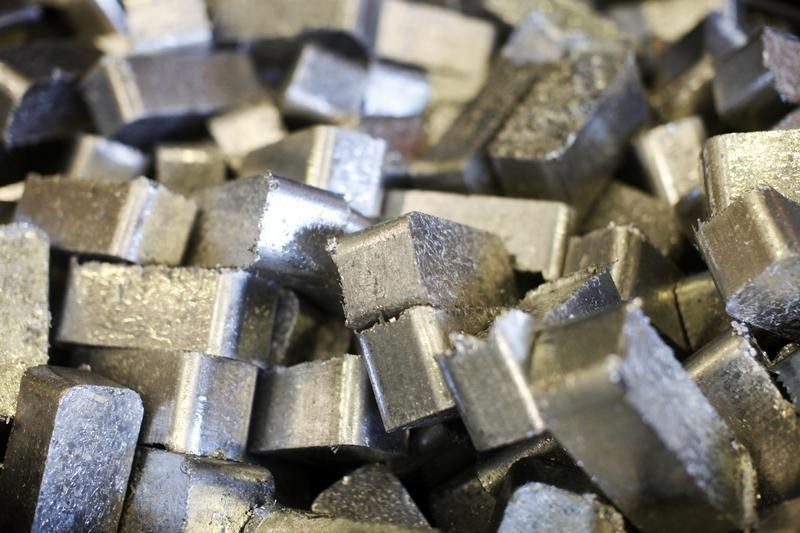(Bloomberg) -- Australia’s move to ban alumina exports to Russia is heaping more pressure on Moscow-based aluminum giant United Co. Rusal International PJSC and pushing up prices of the so-called everywhere metal.
Aluminum jumped and Rusal shares tumbled as Rio Tinto (NYSE:RIO) Group, operator of the Queensland Alumina (OTC:AWCMY) Ltd. joint venture with the Russian company, said it would comply with all of Canberra’s directions. Rio reiterated that it was in the process of terminating its commercial relationships with Russian businesses following the country’s invasion of Ukraine. Rusal holds a 20% stake in the Queensland JV.
See also: Rio Tinto to Sever All Commercial Ties With Russian Business
Australian Prime Minister Scott Morrison said that a ship due to dock this week to collect a load of alumina -- the key ingredient used in making aluminum -- bound for Russia would not deliver its cargo as he announced the ban on Sunday. Australia supplies nearly 20% of Russia’s alumina and its exports of aluminum ores, including bauxite, to Russia have also been prohibited.
Aluminum jumped as much as 4.8% on the London Metal Exchange early on Monday. Supplies of the metal -- used in everything from cans to airplane parts and window frames -- were running low even before war in Europe threw global commodity markets into turmoil. This latest development threatens to add even more inflationary pressure to the global economy.
Russia is a key supplier of aluminum to markets including Turkey, China and Japan. The metal rose 4.4% to $3,529 a ton on the LME as of 10:43 a.m. in Singapore and is up around 26% this year.
Rusal said in a statement that it was evaluating the impact of the ban. Rio plans to stop supplying bauxite to, and buying alumina from, Rusal’s Aughinish plant in Ireland, people familiar with the matter said earlier this month. The company’s shares dropped as much as 8.9% in Hong Kong on Monday following Australia’s announcement.
While aluminum hasn’t been targeted by global sanctions, Rusal -- which needs bauxite and alumina to feed its plants -- is facing disruption to its supply chains as companies pull back from doing business with Russia. The company has also slashed output from its Nikolaev alumina refinery in Ukraine due to logistical and transport challenges arising from the war.
Australia said the ban would apply to “all relevant shipments” to Russia, although it’s unclear whether Rusal will be able sell alumina from its Queensland mine onto the market, and then buy the feedstock from alternative suppliers. If the Russian company isn’t able to do this, then prices will likely see more upward pressure.
“The spirit of the sanctions announced would probably suggest that Rusal won’t be allowed to profit financially from alumina sales at all, but this is unclear in the current wording,” Gavin Wendt, senior resources analyst at consultancy Mine Life Pty, said by email.
Rusal was founded by Russian tycoon Oleg Deripaska, who retains an interest via his shareholding in Rusal’s majority owner En+ Group International PJSC. The Australian government last week announced a new round of sanctions against oligarchs close to President Vladimir Putin, including Deripaska.
EN+ Group said earlier this month it was considering a potential carve out of Rusal’s international business, creating a new company to house its alumina, bauxite and aluminum assets across the globe which would no longer have any Russian ownership.
©2022 Bloomberg L.P.
